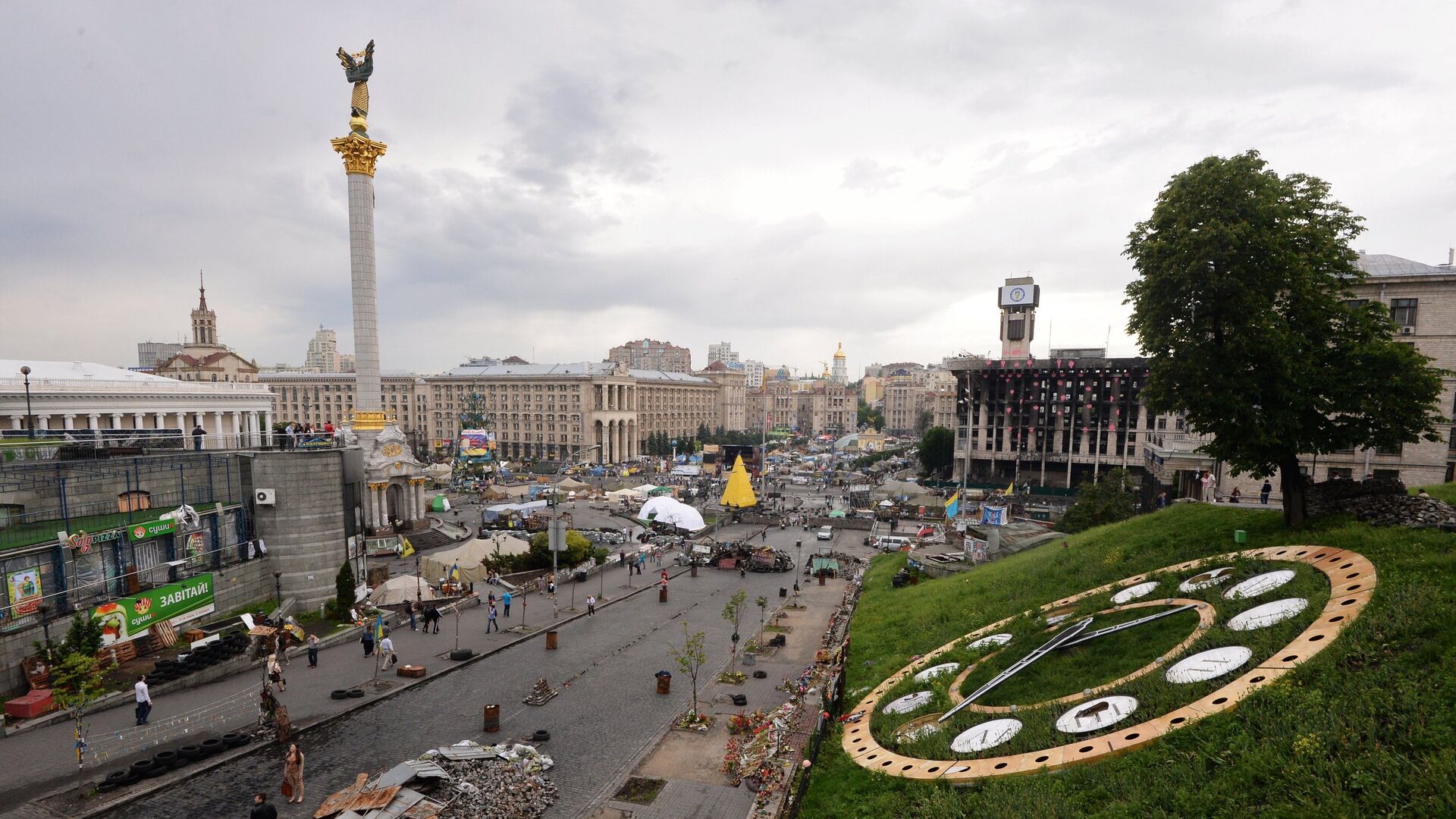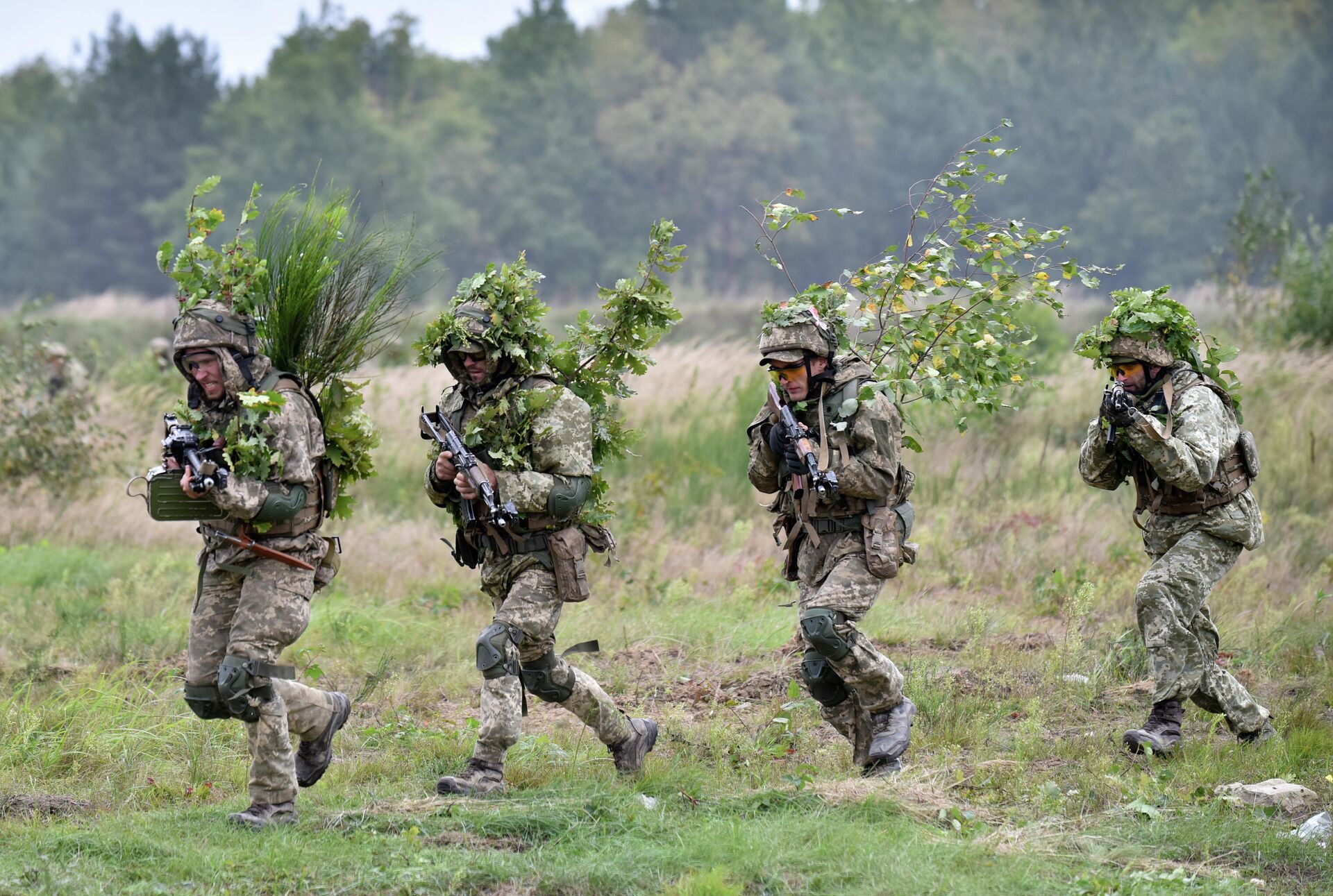https://sputnikglobe.com/20220124/uk-has-reportedly-begun-staff-withdrawal-from-its-embassy-in-ukraine-1092477890.html
UK Has Begun Staff Withdrawal From Its Embassy in Ukraine
UK Has Begun Staff Withdrawal From Its Embassy in Ukraine
Sputnik International
The tensions around Ukraine have flared up over the past several days, with the US Department of State ordering the evacuation of American diplomats' families... 24.01.2022, Sputnik International
2022-01-24T08:03+0000
2022-01-24T08:03+0000
2023-05-28T15:17+0000
ukraine
russia
diplomats
united kingdom (uk)
https://cdn1.img.sputnikglobe.com/img/101702/03/1017020349_0:0:3077:1731_1920x0_80_0_0_87aa33eeabb067960669d67934146da7.jpg
The United Kingdom decided to withdraw part of its embassy staff from Ukraine on Monday, claiming there is a "growing threat from Russia".London has been stirring up the panic over a so-called "Russian invasion" for some time, promising "nuclear" sanctions against Moscow and claiming that the Kremlin plans to install a "puppet government" in Kiev. The Foreign Office even named former Ukrainian MP Yevhen Murayev as a potential candidate to head the "pro-Russian government", despite him having been under sanctions in Russia since 2018. Even the Ukrainian politician himself mocked the British authorities, suggesting that "Mr. Bean" should be asked for clarifications on the UK's claims.Russia, in turn, blasted the UK government, urging the United Kingdom to "stop the provocations" around Ukraine.Over the past few months, NATO countries have repeatedly accused Moscow of preparing for aggression, and gathering troops along the Ukrainian-Russian border. The Kremlin has refuted the claims and has pointed to NATO's military activity near the Russian border as a threat to national security.In a bid to de-escalate the tensions, Russia put forward security guarantee proposals, suggesting to place limits on troop, warship, aircraft, and missile deployments for both sides. The draft agreements offered by Moscow also stipulated that NATO not expand or establish bases near the Russian border, however, the bloc maintained it would not cease its "open-door" policy.
ukraine
united kingdom (uk)
Sputnik International
feedback@sputniknews.com
+74956456601
MIA „Rossiya Segodnya“
2022
Evgeny Mikhaylov
https://cdn1.img.sputnikglobe.com/img/07e4/09/07/1080390164_0:0:1440:1440_100x100_80_0_0_46c187f2ab0908f86849a7d09a7def57.jpg
Evgeny Mikhaylov
https://cdn1.img.sputnikglobe.com/img/07e4/09/07/1080390164_0:0:1440:1440_100x100_80_0_0_46c187f2ab0908f86849a7d09a7def57.jpg
News
en_EN
Sputnik International
feedback@sputniknews.com
+74956456601
MIA „Rossiya Segodnya“
Sputnik International
feedback@sputniknews.com
+74956456601
MIA „Rossiya Segodnya“
Evgeny Mikhaylov
https://cdn1.img.sputnikglobe.com/img/07e4/09/07/1080390164_0:0:1440:1440_100x100_80_0_0_46c187f2ab0908f86849a7d09a7def57.jpg
ukraine, diplomats, united kingdom (uk)
ukraine, diplomats, united kingdom (uk)
UK Has Begun Staff Withdrawal From Its Embassy in Ukraine
08:03 GMT 24.01.2022 (Updated: 15:17 GMT 28.05.2023) The tensions around Ukraine have flared up over the past several days, with the US Department of State ordering the evacuation of American diplomats' families from the country.
The United Kingdom decided to withdraw part of its embassy staff from Ukraine on Monday, claiming there is a "growing threat from Russia".
"Some Embassy staff and dependants are being withdrawn from Kyiv in response to growing threat from Russia. The British Embassy remains open and will continue to carry out essential work", the UK travel advice read.
London has been stirring up the panic over a so-called "Russian invasion" for some time, promising "nuclear" sanctions against Moscow and claiming that the Kremlin plans to
install a "puppet government" in Kiev. The Foreign Office even named former Ukrainian MP Yevhen Murayev as a potential candidate to head the "pro-Russian government", despite him having been under sanctions in Russia since 2018. Even the Ukrainian politician himself mocked the British authorities, suggesting that "Mr. Bean" should be asked for clarifications on the UK's claims.
Russia, in turn,
blasted the UK government, urging the United Kingdom to "stop the provocations" around Ukraine.
Over the past few months,
NATO countries have repeatedly accused Moscow of preparing for aggression, and gathering troops along the Ukrainian-Russian border. The Kremlin has refuted the claims and has pointed to NATO's military activity near the Russian border as a threat to national security.
In a bid to de-escalate the tensions, Russia put forward security guarantee proposals, suggesting to place limits on troop, warship, aircraft, and missile deployments for both sides. The draft agreements offered by Moscow also stipulated that NATO not expand or establish bases near the Russian border, however, the bloc maintained it would not cease its "open-door" policy.




